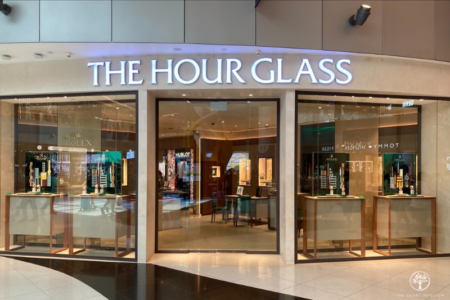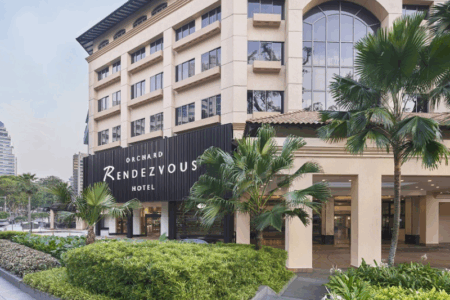Singapore banks have been on a roll the past week.
The trio of lenders saw their share prices surge higher to hit new all-time highs, helping to push the bellwether Straits Times Index (SGX: ^STI) to a one-year high of 3,439.88.
As of 4 July, DBS Group (SGX: D05) is the best performer of the three with a 25.6% year-to-date (YTD) gain after hitting its intra-day all-time high of S$38.17.
OCBC Ltd (SGX: O39) came in second with a 17.3% YTD gain after hitting an all-time high of S$15.15.
United Overseas Bank (SGX: U11), or UOB, logged a 14.3% YTD gain and set a new all-time high of S$32.64.
Investors may be curious to know if the banks can continue their stellar performance.
Are there any catalysts or business developments that can take these lenders to another level?
An uncertain interest rate policy
It’s a well-documented fact that banks thrive in a higher interest-rate environment.
As interest rates head upward, banks can loan out money at higher rates.
However, they may not increase the interest rates they pay on their deposits by the same quantum.
The difference between the rates that they lend out money versus those that they pay out on deposits is known as the net interest margin or NIM.
UOB’s NIM for 2023 stood at 2.09%, up from 1.86% a year ago while OCBC’s NIM rose from 1.91% to 2.28% over the same period.
DBS saw its group NIM increase by 0.4 percentage points from 1.75% in 2022 to 2.15% in 2023.
This higher NIM has persisted into the first quarter of 2024 (1Q 2024) with DBS’s NIM coming in at 2.14% while OCBC’s NIM hovered at 2.27%.
Because of the higher NIM, both DBS and OCBC reported record results for 1Q 2024 with the former’s net profit hitting S$2.96 billion and the latter posting a record profit of S$1.98 billion.
There are rumblings of a possible interest rate cut coming up by the US Federal Reserve.
Inflation in the US has slowed to 3.3% in May, slightly below expectations of a 3.4% increase.
The consumer price index also held steady from the month before without further increases.
Meanwhile, the labour market in the US is also cooling, with the unemployment rate inching up from 4% in May to 4.1% in June.
This unemployment rate was the highest since November 2021 and broke the 30-month streak where unemployment stayed at 4% and below.
These statistics have increased the odds of an interest rate cut by the US central bank.
If interest rates do decline, the banks will see their NIM softening, which will, in turn, reduce their total income and net profit.
Fee income could mitigate the impact
The good news is that banks do not rely solely on their NIM and net interest margin to generate income.
There is a component of total income known as non-interest income or fee income that can help mitigate the impact of lower interest rates.
DBS saw its net fee income cross the S$1 billion mark for the first time in 1Q 2024, boosted by higher wealth management fees and increased card fees from higher spending.
Singapore’s largest lender expects its commercial book non-interest income to grow by mid-to-high teens per cent as it sees better-than-expected momentum in wealth management and treasury customer sales.
UOB expects double-digit fee income growth for the remainder of 2024 while OCBC recorded a new high for wealth management income as its assets under management (AUM) saw healthy inflows.
Strategic goals
All three banks are not standing still even as the interest rate environment remains uncertain.
DBS plans to boost its AUM for its wealth business to S$500 billion by 2026 even as wealth assets grew 23% year on year in 2023 to a record S$365 billion.
UOB is taking a different tack and is eyeing more concert partnerships with K-pop, Asian and international acts in the coming months.
By doing so, the bank can increase the uptake of credit card applications and see increased spending on concert tickets.
Earlier this year, UOB partnered with ticket vendors for the hugely popular Taylor Swift and Ed Sheeran concerts, resulting in strong sign-ups from a younger crowd.
These moves will benefit the bank as its card fees rise, thus boosting its non-interest income.
OCBC is also not standing till as the bank plans to invest HK$1.5 billion in the Greater China region to upgrade its technology and facilities.
The lender plans to add an incremental S$3 billion in revenue by 2025 and is gearing up to grow its AUM in this region over the next three years.
Get Smart: Room for growth
Interest rates may be poised to head downward, but the three Singapore banks should not be fazed.
All three look well-positioned to grow their fee income and have initiatives in place for longer-term growth.
The best gift a responsible parent can give their child is a secure, comfortable financial future. And we found that dividend investing is one of the easiest and effortless methods to do it. Our latest FREE report reveals how you can do it, plus the 3 SGX stocks you can buy today to start future-proofing your child’s financial future. Click HERE to grab a copy of the guide.
Disclosure: Royston Yang owns shares of DBS Group.





